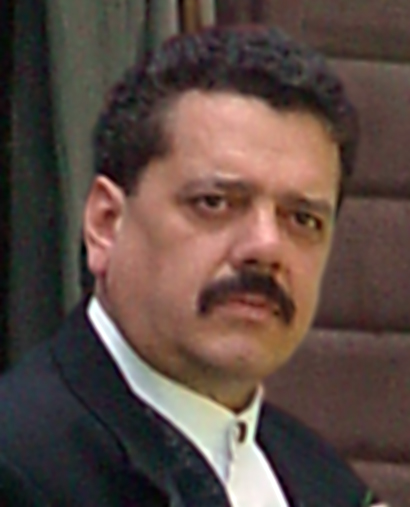All goes well for 40-years or so, even as Big Business continues to castrate labor unions and deregulate banking. Our trusted government plays along with the game, and nobody seems to notice. After all, we're getting what we always wanted, right? Something for nothing -- the "American Dream" -- Yay team.
But then the spring-loaded trap slams shut with a loud metallic "CLANK!" Workers suddenly lose their jobs and their homes, everybody is up to their eyeballs in debt, unemployment and crime escalate, and government officials point fingers at each other to evade the blame as a supposedly "liberal" administration not-so-coincidentally comes into power.
"Save us, Obama! Save us!" comes the desperate cry of the American middle-class as they look down in horror at the rest of society, "We don't want to be like THOSE people!"
But FDR didn't "save Capitalism from itself", and neither will Barack Obama. [13] Turns out the Japanese actually "saved" the American economy when they bombed Pearl Harbor in 1941. Expensive as they might have seemed, Roosevelt's "New Deal" programs were far too small to stop the avalanche of growing US unemployment.
Instead, the Great Depression finally ended with the vast production of the wartime economy. "Government spending, which had frightened Roosevelt when atop $15-billion in 1936, soared above $100-billion in the middle of the war. The massive government intervention in the economy finally brought full production and full employment." [1] And for a short time after World War II, fiscal policy seemed like an effective counter strategy for the ups and downs of investor confidence.
But now, even Keynesian government intervention seems awash, as Big Business controls our trusted government with seductive lobbying and campaign finance. Moreover, US workers are confronted with an army of competition in the labor market imposed by civil rights and feminism (of all things), along with immigration and the hypermobility of capital enhanced by technological advancement. [7] [14] Forced into poverty by a US middle-class pursuit of the "American Dream", cheap labor in Mexico, India, China, Korea and the Philippines are now the greatest competitors for middle-class American jobs.
Justice is a funny thing, ain't it? Groping and grabbing and stabbing each other in the back, "Americans" stand on each other's throats in a desperate attempt to ascend the corporate ladder of individual success. But the greatest obstacle to "The American Dream" seems to be -- "The American Dream" -- and there's not a thing that George W. Obama can do about it.
Thanks to all his Republicratic predecessors, the bulk of Obama's "economic recovery plan" will most likely be paid to workers outside the United States -- because -- most of the world's manufacturing now resides outside the United States. [15] As Obama himself has observed, batteries for electric cars and hybrids are manufactured in Japan and wind turbines for electric power are manufactured in Europe. Meanwhile, Bill Gates and friends are pressuring the US Congress for more lenient immigration laws so that Microsoft and other US corporations can avoid hiring "American" workers within the United States. [10]
None of this comes as much of a surprise. Workers and investors are natural adversaries because their interests are directly opposed. Human beings tend to produce more than they consume, and human labor-power is the one commodity that creates more value than it costs to buy. But as long as labor is a cost of production, investors will try to drive wages as close to zero as possible. This conflict of human interest is the dysfunctional root of our entire economic system.
Eventually, the "marginal utility" of this dysfunctional relationship must come into question. Most of our economic problems could be solved by permanently removing the antagonism between workers and investors with regard to wages. Since about 99-percent of us happen to be workers, the most obvious approach might be to get rid of both wages and investors to arrive at a more balanced and sustainable system of "Economic Democracy". [4]
But the proposal of a new economic model, or even reform agendas, only raises more questions about "transition". How can we possibly get from "here" to "there"? In this regard, the power of economic withdrawal seems largely misunderstood and grossly underestimated. If most of us can't even admit that the current crisis was created by collective consent, then how can we possibly reform or replace the existing model through either democracy or consensus?
Despite Barack Obama's flowery claims regarding faith and hope, it was "work" -- human labor and innovation -- that made the United States a dominant force in the modern world. The US could continue to provide an innovative and glimmering example for the rest of the world to emulate. But if we cannot generally agree that labor-power is the most fundamental basis for any human economy, then how can we collectively withdraw that power from the current crisis in favor of a more balanced and sustainable system?
Of course, a new and improved economic system will not save the earth or even save the human race. Turns out the planet doesn't need any "saving" --WE DO-- For the first time in the Earth's 4.5-billion-year history, human influence is THE most significant factor in ecological change that threatens to kill us all. Assuming this self-created human disaster doesn't completely exterminate the human species, how should human survivors reorganize to prevent similar calamities in the future?
These and many other questions must be explored with regard to "transition" from Capitalism toward Economic Democracy. In general, creation cannot dominate its creator. People like to worship their own creations just as dogs seem to enjoy sniffing their own turds. But at some point the human species needs to grow up and realize that Capital cannot dominate People, and People cannot dominate Nature. The model is upside-down. It's time to flip it over.
_________
Notes:
(Note: You can view every article as one long page if you sign up as an Advocate Member, or higher).





